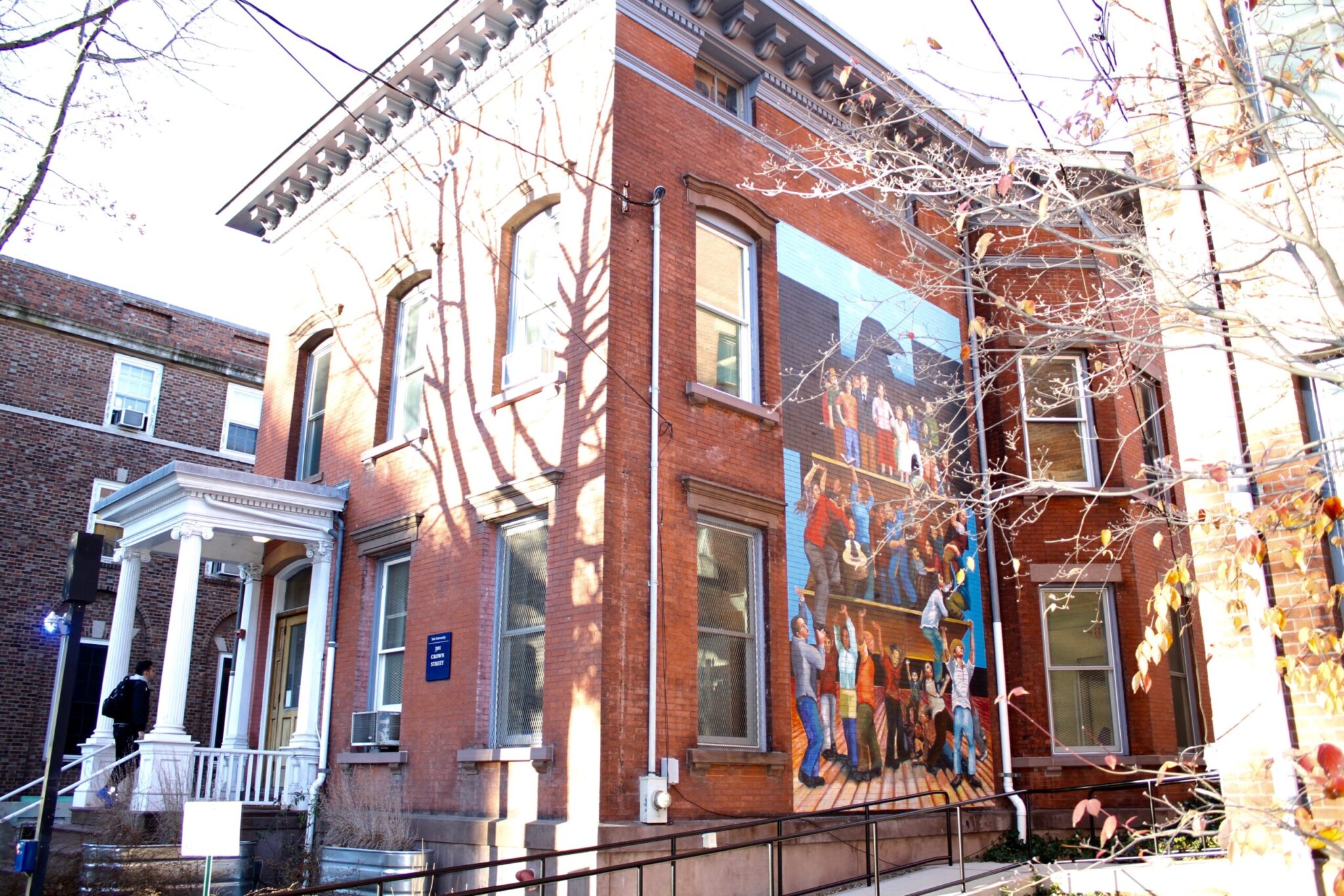Yale’s cultural groups respond to student arrests, extend support to pro-Palestine protesters
After Yale police arrested 48 pro-Palestine student protesters on Monday morning, several of the University’s cultural groups released statements condemning the University’s response and expressing support for the students involved in the protests.

Skakel McCooey
Several of Yale’s cultural groups have released statements extending support to ongoing pro-Palestine student divestment protests after Yale police arrested 48 protesters early in the morning on Monday, April 22.
In a joint Monday evening statement, 25 affiliate organizations of the Asian American Cultural Center expressed solidarity with the arrested students and those involved in the protests. In the statement, which was not officially endorsed by the AACC, the groups wrote that they were “greatly saddened” by the administration’s response to protests they characterized as non-violent. They also wrote that they were disappointed that the University had failed to “protect marginalized voices” on its campus.
“I think that each member who signed the statement has their own intentions and reasonings, but speaking personally, I decided to vote for signing because of the history of solidarity and advocacy for liberation that precedes KASY and the Korean American community at large,” said Mark Chung ’25, co-president of the Korean American Students Association at Yale, who signed the statement alongside the 24 other AACC affiliate organizations. “We as Koreans are defined by the lasting effects of colonialism and American imperialism, and it is our duty to stand with those around the world fighting against the same struggles.”
Chung told the News that KASY was involved in the planning and drafting of the letter alongside the other organizations listed as co-signers. He added that KASY voted on the statement as a board, with the stipulation that without a unanimous vote, they would not sign the letter. The statement ultimately received unanimous support.
Since early last week, campus has been embroiled in discourse around divestment. Hundreds of Yale students and community members have protested the University’s investments in military weapons manufacturers in light of Israel’s ongoing war against Hamas in Gaza.
The protests included an extended student occupation of Beinecke Plaza beginning on Friday, April 19. Early in the morning on Monday, April 22, Yale police arrested 48 student protesters for trespassing on Beinecke Plaza and cleared out their encampments. Using zip ties, officers escorted them through the College Street entrance of the Schwarzman Center onto Yale Shuttle buses.
The arrested protesters faced charges of criminal trespassing, categorized as a Class A misdemeanor, before being released with citations and an assigned court date of May 8. Arrested students will also be referred to the Yale College Executive Committee for disciplinary action, potentially resulting in reprimand, probation or suspension.
The protesters have since relocated to Cross Campus, where dozens of students remain as of Wednesday night.
“We are firmly against the University’s criminalization of peaceful protest, and stand united with our friends and peers, who were arrested by YPD Monday morning, in calling for Yale’s disclosure of and divestment from military weapons manufacturers, along with a ceasefire in Gaza,” Joshua Ching ’26, president of the Indigenous Peoples of Oceania cultural group, who also co-signed the AACC-affiliated statement, wrote to the News.
Ching said that for the IPO, divestment from military weapons manufacturers is about solidarity with the Palestinian people and about “fighting against the ongoing military occupation” of Pacific island nations, which he said include Hawai‘i, Guåhan, West Papua and which IPO members “call home”
Ching added that the IPO also signed another joint statement with student organizations affiliated with the Native American Cultural Center expressing similar sentiments.
Following the arrests, several cultural groups have continued to participate in events with pro-Palestine protesters. On Tuesday, April 23, Mecha de Yale, a student organization dedicated to social justice for the Latine community, collaborated with Yalies4Palestine to host an event titled “Baila Por Un Sueño.”
At the event, which was held on Cross Campus from 7 p.m. to 10 p.m, attendees participated in events focused on creating “intercultural solidarity while centering and having all eyes on Palestine.” Programming included poster-making workshops and an informal teach-in about Palestinian resistance symbologies, as well as Palestinian and Latin American solidarity poetry readings and dance workshops.
On Monday, the Black Students Alliance at Yale also released a statement condemning the arrests of the pro-Palestine protesters. In the statement, BSAY wrote that the group “condemn[s] Yale’s criminalization of our peers.”
“We released a statement yesterday to make clear that we stand in solidarity with our peers who were arrested yesterday,” Momona Hadish ’25 and Anna Elesinmogun ’25, co-presidents of BSAY, wrote in a joint statement to the News. “We understand that as presidents of BSAY, our organization would not be standing without political and social justice efforts — without those taking bold stances for what is right — thus, it is our responsibility to speak out when such grave injustices are occurring on our campus.”
Yale’s first cultural center, the Afro-American Cultural Center, was established in 1969.







